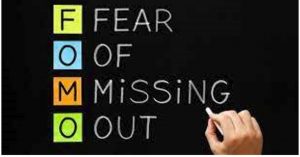It’s okay to be you!
In recent years the fear of missing out, or “fomo”, has been a more common phrase. We immerse ourselves in measuring up, or keeping up, with everyone in our social circle, family, school or work peers, and even neighbors. We have this fear of not only missing out, but also the fear of being left […]

